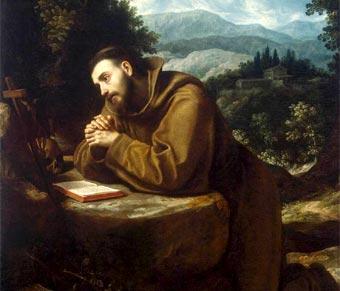“Brothers All” is the title of the Encyclical on fraternity and social friendship, which Pope Francis will sign on Saturday, October 3, 2020, in Assisi.
This beginning is taken from Brother Francis’ sixth admonition” “Let us look with attention, brothers all, at the Good Shepherd, who endured the Passion of the Cross to save His sheep. The Lord’s sheep followed Him in His tribulation and persecution, in shame and hunger, in sickness and temptation and other such things and, because of that, they received eternal life from the Lord. Therefore, it is a great shame for us, servants of God, that the Saints did their deeds, and we want to receive glory and honor only by telling them” (FF 155).
 The admonitions are the transcription of the exhortations that Assisi directs to the Friars gathered in Chapter — the highest expression of Minor Fraternity (cf. Merciful Francis. The Challenge of Fraternity, Terra Santa Publishers, Milan, 2018) — and the sixth admonition is Francis’ reaction to the pride with which the Minor Order boasted of the martyrdom of five friars murdered in Morocco in 1220 (cf. Saints by Attraction: The Franciscan Proto-Martyrs between Anthony of Padua and Clare of Assisi, Terra Santa Publishers, Milan, 2020).
The admonitions are the transcription of the exhortations that Assisi directs to the Friars gathered in Chapter — the highest expression of Minor Fraternity (cf. Merciful Francis. The Challenge of Fraternity, Terra Santa Publishers, Milan, 2018) — and the sixth admonition is Francis’ reaction to the pride with which the Minor Order boasted of the martyrdom of five friars murdered in Morocco in 1220 (cf. Saints by Attraction: The Franciscan Proto-Martyrs between Anthony of Padua and Clare of Assisi, Terra Santa Publishers, Milan, 2020).
A few decades later, the Franciscan chronicler Giordano da Giano recounted an even drier and sharper saying of the welfare Saint: “Each one must glorify himself in his own martyrdom and not of that of others” (FF 2330).
The evangelical preaching of the Franciscan Proto-Martyrs, as well as the meeting between Saint Francis and the Sultan in Egypt, are the expression of the will of the Minor Fraternity to be present from the beginning, including beyond the Christianity’s borders, opening itself to the great horizons of the land of non-Christians. Precisely this choice is at the origin of the image of fraternity and social friendship, of which the Franciscan essence is today considered a symbol.
Pietro Messa
Translation by Virginia M. Forrester



